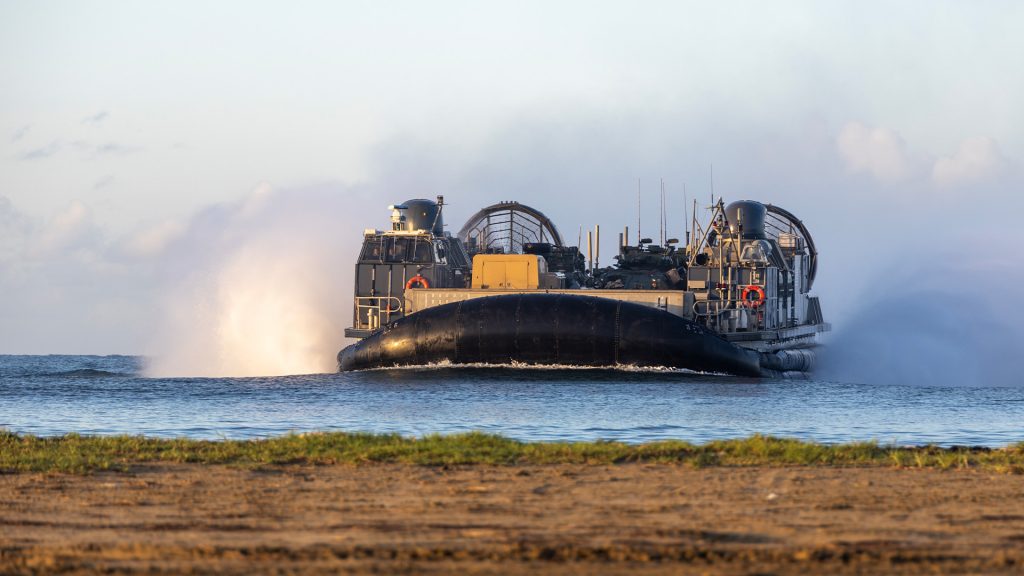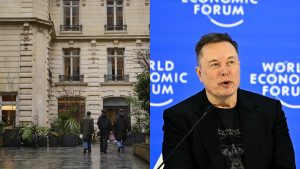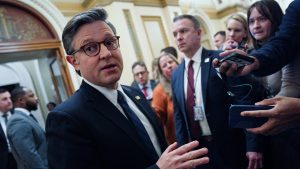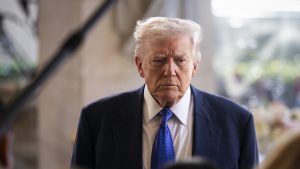Trump’s conflict with ‘narco-terrorists’ could be a prelude to war with Venezuela

Not since the Cuban Missile Crisis has the United States deployed so many military assets to the Caribbean. President Donald Trump has now given the greenlight for the CIA to carry out covert operations in the region, intensifying tensions with Venezuela’s President Nicolás Maduro, who accuses Washington of plotting a regime change.
Maduro condemned the growing military presence as “a fabrication of war,” claiming the U.S. is inventing a pretext to invade.
“They promised they would never again get involved in a war, and they are fabricating a war that we will avoid,” Maduro said in a nationally broadcast speech.
He added that Venezuela “does not produce cocaine leaves” and accused Trump of “creating a vulgar and totally fake narrative.”
How the US got here
A few months into his second term, Trump declared several Central and South American drug cartels to be foreign terrorist organizations. Soon after, he announced that the United States was in an “armed conflict” with those groups, classifying cartel members as “unlawful combatants.”
This legal framing allows the White House to use the same powers presidents once relied on to target al-Qaeda and ISIS.
“There are two important documents,” said Mark Temnycky, a non-resident fellow at the Atlantic Council. “The first is the United Nations Charter, where in Article 2, Section 4, it says that if countries feel threatened or provoked, they can resort to using force for self-defense. The second is the United States Constitution, which says the president is the commander-in-chief. Those in the current administration believe that the interpretation of this war against the cartels — defending the United States from drug trafficking — is a way of protecting the country.”
A show of force
The U.S. has several destroyers and amphibious assault ships in the Caribbean, with the USS Gerald R. Ford carrier strike group en route from the Mediterranean. F-35B jets are stationed in Puerto Rico, and U.S. bombers have conducted flights near Venezuelan airspace.
According to The Atlantic, the Pentagon says the buildup is meant to “bolster U.S. capacity to detect, monitor, and disrupt illicit actors.” But analysts and officials acknowledge the scale of the deployment far exceeds what’s needed for maritime interdiction.
“The only thing you could use the carrier for is attacking targets ashore,” said Bryan Clark of the Hudson Institute. “If you are striking inside Venezuela, the carrier is an efficient way to do it due to the lack of basing in the region.”
The size of the force — roughly 6,500 Marines and sailors on eight ships, plus 3,500 troops nearby — is similar to the U.S. presence that was stationed in the Red Sea to defend Israel from Iranian and Houthi attacks earlier this year.
A question of legitimacy
“The Venezuelan government is not a legitimate military threat to the United States,” said Abigail Hall, an associate professor of economics at the University of Tampa who studies U.S. military interventions in Latin America.
Hall believes domestic politics play a large role in the campaign.
“It’s a way for the administration to appear tough on drugs and illegal immigration without burning additional political capital,” she said. “There’s no friendly relationship between Washington and Caracas, so there’s little political cost to taking a hard stance.”
She added that the deeper issue may be geopolitical: “The Venezuelan regime allows China and Russia to drill in the Orinoco River, providing crude oil for both countries. From the U.S. perspective, replacing the regime with one friendlier to Washington could shift the regional balance of power.”
Reviving the Monroe Doctrine
J. Michael Waller, a former CIA asset and national security expert, says the U.S. response is about more than narco-trafficking.
“If you go back to the Monroe Doctrine of 1823, the United States pledged to stand by the republics of the Western Hemisphere against foreign empires,” Waller said. “In the case of Venezuela, it’s key because the regime has surrendered sovereignty to Communist China, brought in the Russians, and even Hezbollah under Iranian tutelage. These are foreign powers that have come in to cause trouble aimed at us.”
Waller said the administration’s logic rests on its derecognition of the Maduro government. Since the U.S. no longer recognizes Maduro as the legitimate head of state, it can view his regime as a terrorist cartel that has seized the powers of government. Under that interpretation, Waller said, the White House likely believes strikes against the regime are legally justified.
The “Donroe Doctrine”
According to The Telegraph, insiders have dubbed Trump’s broader Latin America strategy the “Donroe Doctrine,” a hybrid of “Donald” and “Monroe.” The policy seeks to reassert American dominance in the Western Hemisphere and curb Chinese influence in South America.
Former National Security Adviser John Bolton told The Telegraph the approach is “long overdue.”
“All the adversaries we’ve got have a significant presence in Venezuela,” Bolton said. “Removing Maduro is such a priority.”
The Trump administration’s top diplomat, Secretary of State Marco Rubio, is reportedly playing a central role in the Venezuela strategy — reframing it as both a counterterrorism and anti-China initiative.
Escalating pressure
Since the strikes began, the U.S. has attacked at least a dozen suspected drug boats, killing nearly 60 people. All operations have taken place in international waters, though Trump recently warned there will be land action in Venezuela soon.
Defense Secretary Pete Hegseth described the cartels as “the al-Qaeda of our hemisphere” and vowed they “will be hunted, and killed, just like al-Qaeda.”
Meanwhile, Maduro’s government responded by expelling opposition leaders and accusing them of collaborating with Washington. The Associated Press reported that the Venezuelan president began legal proceedings to revoke the citizenship of opposition figure Leopoldo López, who has voiced support for U.S. military intervention.
What comes next?
So far, no U.S. strikes have landed on Venezuelan soil. But the deployment of the Ford carrier strike group and the administration’s increasingly aggressive language have regional analysts worried about escalation.
Geoff Ramsey of the Atlantic Council warned if the U.S. succeeds in toppling Maduro, “multiple pro-government armed groups could challenge a new government and contribute to a bloody outcome that would look something like Libya after the fall of Muammar Qaddafi.”
“What you need is a way to channel the enormous pressure that Maduro is under toward a peaceful, democratic outcome,” Ramsey added. “I think you can get there without firing Tomahawk missiles into the country.”
A renewed focus on the hemisphere
For now, Washington insists its campaign remains a counter-narcotics operation. But with warships, bombers and covert CIA missions already in motion — and both sides trading threats — the line between anti-cartel operations and regime change continues to blur.
As Trump put it this week, “We’re going to kill them. You know, they’re going to be, like, dead.”
Whether that rhetoric translates into a full-scale war with Venezuela remains to be seen. But it is clear that the United States is taking a renewed — and forceful — interest in keeping adversaries out of the Caribbean.
The post Trump’s conflict with ‘narco-terrorists’ could be a prelude to war with Venezuela appeared first on Straight Arrow News.





